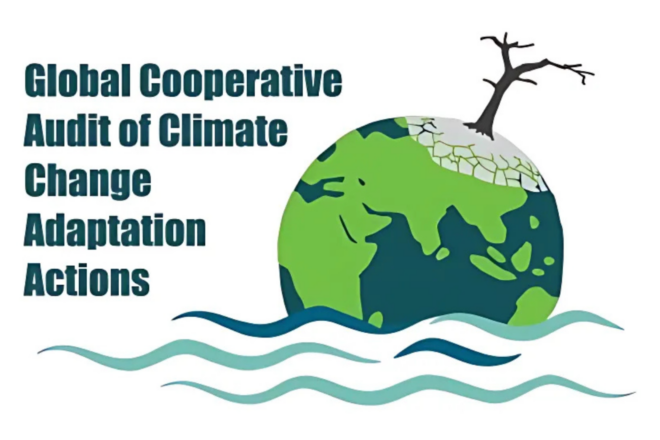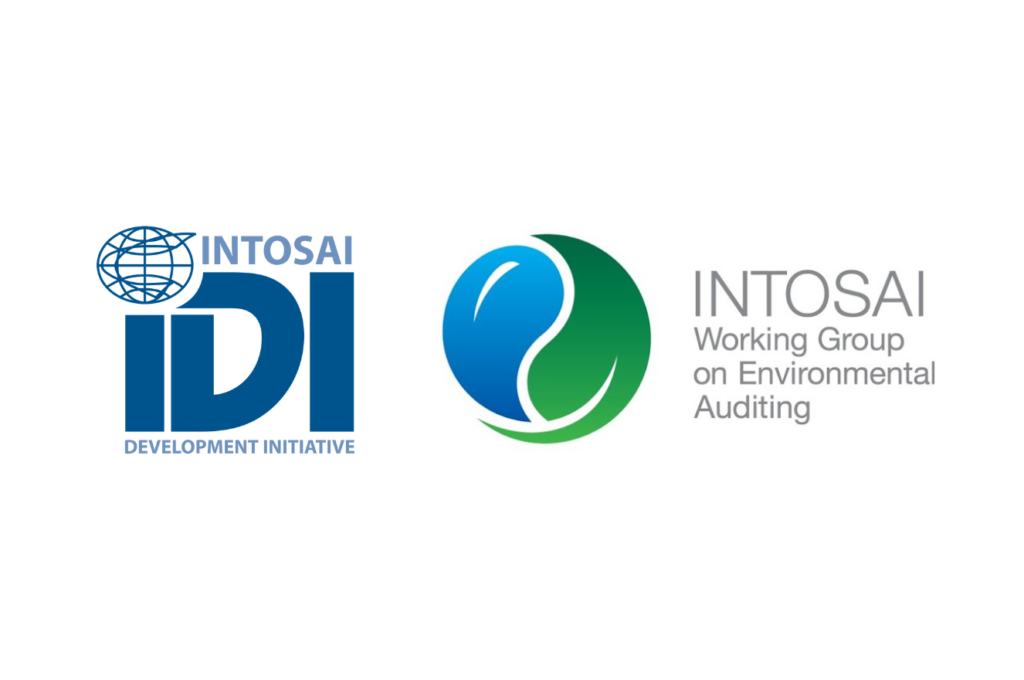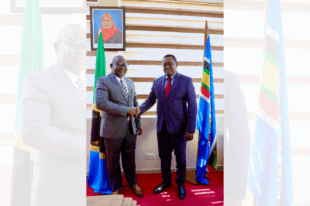A Global Cooperation for holding governments to account in Climate Change Adaptation Actions

Author: INTOSAI Development Initiative
Climate change has, and will have, an impact on every single resident of planet earth. Extreme weather events, such as flooding, severe winds, droughts, or cold temperatures all cause disruptions in agricultural practices, global supply chain, and security. And that only scratches the surface.
The World Economic Forum published a report early in 2024, highlighting the “urgency and necessity of drastic action from both governments and corporations to combat climate change effectively and deliver on commitments.” The Bold Measure to Close the Climate Action Gap: A Call for Systemic Change by Governments and Corporations report urges governments to deliver practical solutions and policies that will enable private sector actors to make a meaningful impact and deliver green solutions in their area of influence.
Supreme Audit Institutions (SAIs) are playing a key role in holding governments accountable for their proposed solutions and adaptation measures. Their work is crucial in contributing to the accountability, transparency, effectiveness and inclusiveness of climate action thereby having a positive impact for people and planet.
The INTOSAI Development Initiative (IDI), together with the (INTOSAI) Working Group on Environmental Audit (WGEA), are facilitating a Global Cooperative of Climate Change Adaptation Actions (CCAA). This audit initiative supports 48 SAIs across INTOSAI regions in providing a relevant response to climate change adaptation actions. IDI-WGEA support aims to facilitate not only high-quality audits as per performance audit ISSAIs but also encourages SAIs to mainstream audit impact considerations throughout the audit process. The audit model also encourages SAIs to engage with key stakeholders throughout the audit process to facilitate audit impact and demonstrate value.
“Climate change is the most pressing issue of this century,” says Einar Gorrissen, Director General of IDI. “Our vision is to strengthen the performance auditing capacity for SAIs on climate change efforts so that improved results lead to positive impact for society and the future.”
Recognizing the diversity of adaptation actions across countries, supports SAIs in auditing four key thematic areas – disaster risk reduction, water resource management, sea level rise and coast erosion, and implementation of climate change adaptation plans or actions (SDG 13). Each of these thematic areas represents cross-cutting opportunities for deeper examination. Participating SAIs have each selected one or more areas and signed a statement of commitment for the audits. IDI-WGEA provide blended support through an integrated education and audit support platform hosted on the IDI’s learning management system.
Besides online education modules, SAIs have access to social learning opportunities, where the SAI teams interact with different stakeholders. SAIs also has access to expert feedback at different stages of the audit process, shared online workspaces during an audit, and meaningful engagement to support effective report-writing.

CCAA is available in English and Spanish, with 237 participants from 48 SAIs, and with the support of respective mentor teams for both languages. English-language participants started online learning in mid-2023 with theme-based webinars facilitated by subject matter experts from SAIs and WGEA. A highlight of the CCAA’s support is the peer-to-peer exchange and mentorship by experts from WGEA that benefit SAIs at various stages of learning.
In August 2024, IDI organised a webinar on fostering innovation in reporting government actions on climate change adaptation. Mr. Orville Grey of the National Adaptation Plan (NAP) Global Network shared his thoughts on how SAIs and NAP Teams ensure effective, accountable, and inclusive reporting on climate change adaptation actions. Monitoring, Evaluation and Learning (MEL) is crucial along with planning and implementation, and it is important to integrate MEL activities at different stages of the process.
Given that climate change particularly affects Small Island Developing States (SIDS), the CCAA initiative has a specific focus on SAIs in SIDS and includes 11 participants from such countries.
“As I watched the 79th Session of the United Nations General Assembly in New York, I am cognizant of the fact that most, if not all, of the world leaders spoke on some aspect of climate change. It is on the forefront of everyone’s mind,” says Ms. Carla Pike, Director of Audit for the National Audit Office of St. Kitts. “The CCAA audit was not only timely but very beneficial to small SAIs such as St. Kitts and Nevis. The training material adequately prepared us for the audit of an area that would have otherwise presented a challenge to us. This gave us a thorough understanding of climate change issues and it allowed us to assess how efficiently and effectively our government is working to tackle climate change issues. We appreciated the assistance and feedback of our mentors from the very beginning of the process. By producing a high-quality report, we aim to hold our government accountable for the international commitments made to tackle this great global challenge.”
“The involvement of the IDI has truly raised the standard of our work, ensuring that we meet the highest levels of professionalism and accountability,” says Rodrigo Paulo Rodrigues da Silva, Federal External Control Auditor from the Federal Court of Accounts (TCU) of Brazil. “Furthermore, the training and guidance provided through the Global Cooperative Audit of Climate Change Adaptation Actions (CCAA) project have been fundamental to our progress. The mentorship and resources have greatly enhanced our team’s development, both in terms of knowledge and the overall quality of the report. The skills we’ve gained during this process will undoubtedly contribute to our future audits and to our continuous improvement as an audit body.”
IDI and WGEA anticipate that the results of CCAA audits will be a fantastic opportunity to reflect on lessons learned in 2025, and to collaborate on a global publication on the results, insights, and key takeaways from this global cooperative audit.
CCAA is just the start of IDI’s engagement with climate action. Next year, IDI will bring its work on sustainability reporting and assurance under the climate action umbrella. IDI will explore new areas of SAI priorities in auditing climate action, and the WGEA survey and upcoming results from Climate Scanner will lay the foundation for the future.






